#alice seebold
Text
Fuck you Alice Seebold
0 notes
Text
Top 10 Favourite Books I Have Read (So Far)
As a writer myself, I can’t help but look back at the novels that have shaped the sort of writer I have become today, and helped me find my own unique voice. A good novel captivates, puts it’s twists in all the right places, and makes you think about the story long after you have finished reading it. It makes you contemplate what it is to be human. It hits you hard and leaves a lasting impression. I thought I could share a few of them with all of you. Without further ado, here goes:
Anna Karenina, Leo Tolstoy (1873)
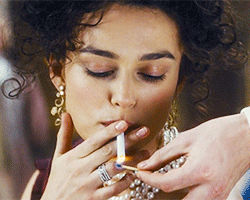
It's a story as old as time; someone, bored with their life, risks it all to have an affair; but this one is special for a number of reasons. First, it serves as a commentary about 19th century upper-class Russia, a time when it wasn't necessarily scandalous to have an affair, but it was scandalous to leave your husband or wife because of it. Many people conducted their affairs in secret, but the passion Anna felt for Vronsky spilled over into her everyday life, and because she had suppressed feeling any kind of emotion for so long, the passion she felt was obsessive and all-consuming, even though in the end it sours and she blames Vronsky for her fall from grace, which is so devastating (she is cut off from seeing her son Seroyzha that she had with Count Alexei Karenin) that in the end she ends her life. It is made all the more ironic that the novel starts with her convincing Dolly, her sister-in-law, to stay with her two-timing brother, Stepan, as “family is all that matters.” The elements of the complexity of families is also makes this tale so unique. Secondly, it could be argued that Anna is not the protagonist of the story at all, but that Levin is, because his upward trajectory is juxtaposed with Anna's fall from grace. He starts off an awkward and gruff loner, and moves toward being a content and happy family man, with a wife Kitty whom he truly loves. His skepticism and malcontent drifts away as the novel wears on. It is said that Levin is actually a representation of Tolstoy himself, but the book was actually a labor of guilt for cheating on his own wife. The novel ends with a broken-hearted Vronsky enlisting for a battle that he hopes not to come back from alive. I love how rich and evolved each character we are introduced to is. As I also have a love affair with Mother Russia myself ever since I studied Russian history in high school, this novel is truly my favorite classic.
On Writing, Stephen King (2000)
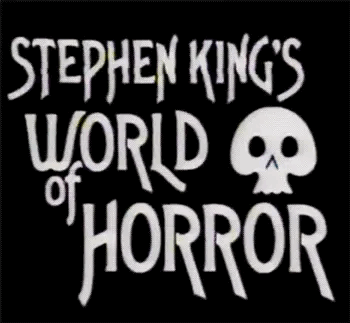
This book is the most straightforward account of what it is like to be a writer from one of the great (if not greatest) modern novelists of our time. It also offers invaluable advice to aspiring and new writers who are looking to hone their craft, but without the flowery, navel-gazing musings so often found in books of a similar ilk. King's real-life descriptions of his struggles with addiction, his pre-writer life, the early days of his success, and his recovery after a horrific accident where he nearly lost his life are related back to his craft so masterfully, and, as such , I cannot recommend this book more to those who are either interested in the mechanisms behind being a writer, or want to be writers themselves. It also serves as a great book to refer back to after you become a writer to make sure you don't get bogged down in common writing mistakes that inadvertently make your work clunky or uninteresting. To paraphrase, King states, to become a writer, talent is essential, but if you don't have the right toolbox to use when writing your masterpiece, its going to look sloppy. King's toolkit, which he elaborates on in his book, is guaranteed to prevent this from happening.
The Virgin Suicides, Jeffery Eugenides (1993)
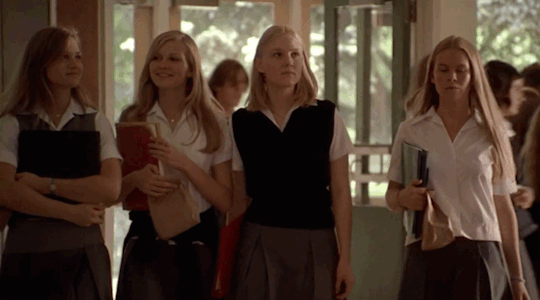
I read this novel after I saw the movie of the same name, which was Sofia Coppola's directorial debut. Like most book-to-movie adaptations, this novel contains slight deviations and more character development than the movie, but is still a deeply fascinating examination of both the psyche of the Lisbon sisters, the minds of the neighborhood boys who were obsessed with them, the paranoia of suburbia, parental oppression, and neighborhood carelessness. I remember that this movie came out when I was 16, but we had to wait until it came out on DVD to see it, because, as the movie dealt with teenage suicide, and the place I lived at at the time had one of the highest youth suicide rates in the state, it was banned in local cinemas. The most interesting character in both the book and the movie was 14-year-old Lux Lisbon, primarily because of her rebelliousness toward her parents' overbearing protectiveness (mostly from her mother, but the spineless dad is definitely an enabler) which borders on abuse. This is perfectly juxtaposed with her inherent need to be an ordinary teenage girl in an abnormal household, and the oppression of this need leading to unbridled promiscuity. The accounting of the Lisbon sisters' story in both the movie and the novel, however, is unreliable, as it is never told from the point-of-view of the sisters themselves, but from the grown-up versions of the neighborhood boys who we were in love with them, and continued to be so after their deaths. The passing of the Lisbon sisters left a lasting impression on each of the boys, and still haunts them in the present. Decay in both the novel and the movie in the form of the diseased neighborhood trees and the decline of the local auto industry, are used as both foreshadowing of worst things to come, as well as an allegory of the Lisbon's family life. Finally, the accountability of the neighborhood and neighbors, and their willingness to turn a blind eye as to what was happening in the Lisbon household is also examined. Their fleeting, off-the-cuff and detached observations, as well as the (mostly) silent monitoring of the girls by the boys, is an excellent example of the damaging consequences of the bystander effect, which all to often leads to disastrous ends. the accountability of the neighborhood and neighbors, and their willingness to turn a blind eye as to what was happening in the Lisbon household is also examined. Their fleeting, off-the-cuff and detached observations, as well as the (mostly) silent monitoring of the girls by the boys, is an excellent example of the damaging consequences of the bystander effect, which all to often leads to disastrous ends. the accountability of the neighborhood and neighbors, and their willingness to turn a blind eye as to what was happening in the Lisbon household is also examined. Their fleeting, off-the-cuff and detached observations, as well as the (mostly) silent monitoring of the girls by the boys, is an excellent example of the damaging consequences of the bystander effect, which all to often leads to disastrous ends.
Eugene Onegin, Alexander Pushkin (1831)
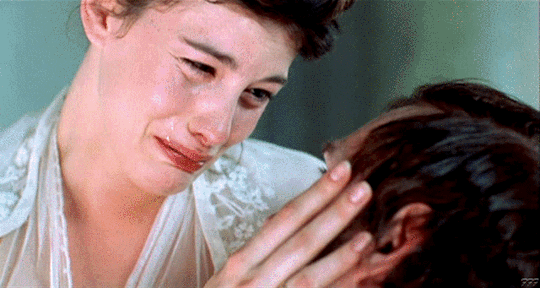
As opposed to the entry above, I read the novel before I saw the movie, which did a pretty good job, considering the novel was written entirely in prose. 230-odd pages of verse penned by one of the greatest Russian poets of the 19th century may seem like a big ask to read, but I can assure you, it is entirely worth it. It tells the tale of an uppity lothario named Eugene Onegin, who, bored with St. Petersburg society, decide to move to his recently-deceased uncle's country estate. This move ultimately leads to Onegin leaving a trail of destruction in his wake, including ruining a woman's reputation, killing her fiance after he challenges Onegin to a duel to defend her honor, and spurning the advances of local provincial beauty Tatiana. Onegin then flees back to St. Petersburg, and after several years, crosses paths once again with Tatiana, Who is now married to a high-ranking general and is a permanent fixture of the St. Petersburg high-society set. When Tatiana shows a grace she never possessed before, and treats him with a cold distain whenever they cross paths, Onegin decides that he loves her, and pursues her doggedly, leading to a show-down between the two would-be lovers, but not in the way you would think. His chance at redemption is alt for nought. Although Tatiana admits her love for Onegin, she also tells him that she would never betray her now-husband to be with him. It is a scintillating slow-burn of a tale of love, loss and propriety in a way that can only be recounted by Pushkin. Interestingly, Pushkin himself was fatally wounded in 1837 after he challenged his brother-in-law, Georges-Charles de Heeckeren d'Anthes, also known as Dantes-Gekkern, a French officer serving with the Chevalier Guard Regiment, to a duel, as he had attempted to seduce the poet's wife, Natalia Pushkina. In some cases, life really does imitate art.
The Book Thief, Marcus Zusak (2005)
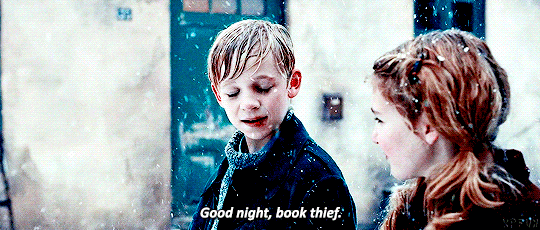
I like the voyeuristic feel of this novel, even if this sounds a little strange. The special interest that Death himself takes in the main character, Liesel Meminger (who is The Book Thief in question) is perfectly juxtaposed over the horrors of living in WW2 Germany. It’s a charming story, recounted by Death himself, all the way up to the main character’s death many years later. It gives us special insights into all the characters and they way they think and act, with no-holds-barred. A unique and truly good read.
The Big Sleep, Raymond Chandler (1939)
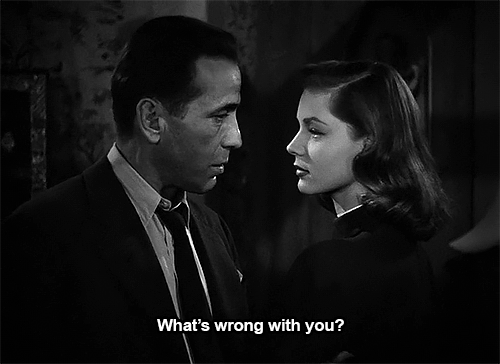
This is hands-down the best noir detective novel ever written, a point I regrettably missed when I first had to read it for Advanced English in Year 11 at school. It has all of the grit expected of the genre and follows Chandler’s mainlining private detective Philip Marlowe, who is hired by a rich family to deal with a blackmailer, Arthur Geiger. His life takes an unexpected turn as he pursues the case and Arthur is found dead.It is both a good detective mystery and a perfect layout for a by-the-numbers look at how this genre should be written. Cool side fact: The Big Sleep is a euphemism for dying.
The Girl With the Dragon Tattoo Series, Stieg Larsson
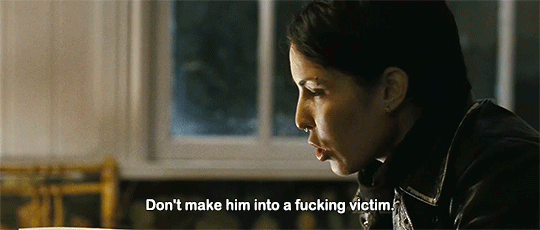
Lisbeth Salander is still the best kick-arse anti-heroine around, a fact that is evident from her character being re-imagined by David Lagercrantz in further novels in the Millenium series after Steig Larsson’s untimely death. At the time these novels came out, I remember everyone on the beach reading a copy, and I especially enjoy the first entry in this series, which explores a missing woman, the demise and rise of journalist Mikael Blomkvist, the back-story and growth of Lisbeth Salander, female sex-trafficking, and feminist themes. On top of being a missing-person story, it is also a murder mystery, and has an awesome twist at the novel’s denouement. A thrilling, wild-ride of a read.I think I especially enjoyed it because I like reading novels situated around serial killers. That’s all I’ll say. Read the book.
We Need to Talk About Kevin, Lionel Shriver (2003)
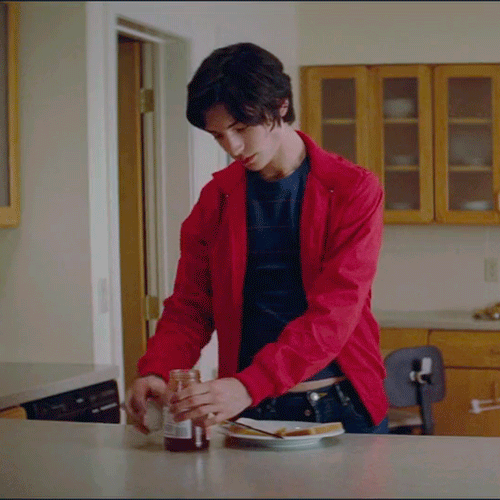
This book is just brutal and a no-holds-barred look at whether killers are born or made.It is told by Eva Khatchadourian in a series of letters to her husband, Franklin, which discuss their son, Kevin, and his behaviour growing up, as well as her reactions to said behaviour, which ultimately lead to a thrilling, if unnerving, conclusion.
IT, Stephen King (1985)
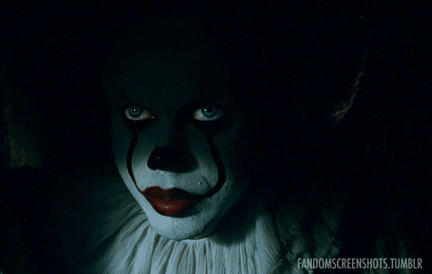
Although it is a gigantic read at 1,128 pages, IT is worth every page. Stephen King's novel about a demonic, otherworldly entity that preys and feasts on the children of Derry, Maine every 27-odd years is a masterpiece second only to his equally weighty saga The Stand. It tells the story of childhood friendship, and the strength one can have when standing together with friends. It is a perfect tale of good triumphing over evil, which is a familiar theme in King’s books which tends to get overlooked in favour of the more horror-like elements. Be warned, it does jump back-and-forth in time, and there are a few awkward parts of the book that the movie thankfully skipped, but they don’t really feel out of place in the novel. This “clown” will give you nightmares, but the ultimate triumph of The Loser’s Club is worth hanging in for.
The Lovely Bones, Alice Sebold (2002)

I've gotta admit, the ending was unsatisfying, but is probably a more realistic account of what usually happens in unsolved cases such as Susie Salmon's. There is a karmic vibe, and at least the killer is disposed of in an unceremoniously undignified way. It’s ultimately a tale of how grief can keep you stuck, and how acceptance is part of moving on. Totally skip the movie and just read the book.
I just realised, all but one of these books has been made into a movie, whether it be a box-office hit or Indie, which I suppose really just attests to how good they are. I’ll be back with another top 10 favourite books soon no doubt. See you on the flip-side.
#ilovebooks#justread#top10books#top10lists#anna karenina#it#the lovely bones#we need to talk about kevin#the big sleep#On writing#the virgin suicides#eugine onegin#the girl with the dragon tattoo#leo tolstoy#stephen king#jeffrey eugenides#marcus zusak#alice seebold#raymond chandler#lionel shriver#alexander pushkin#russian literature#classic literature#literary books#horror novels#noir#novel genres#bookworm#writer biographies#writer help books
16 notes
·
View notes